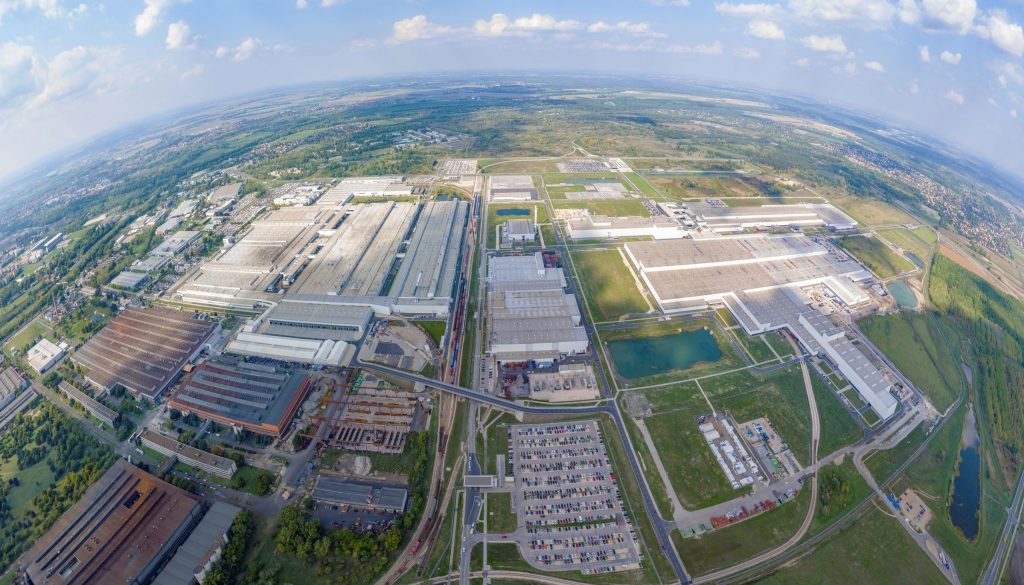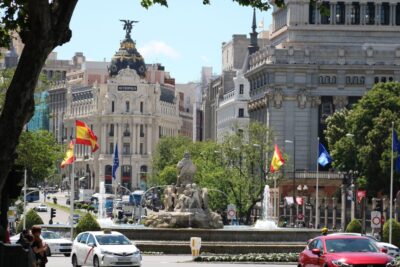Geothermal heat part of Audi’s plans and commitment to Paris Climate Agreement
With its commitment to the Paris Climate Agreement, Audi and the Volkswagen Group is not only looking at electric cars, but also how to curb carbon emissions in the production of cars, geothermal as elementary part for heat at its plant in Györ, Hungary.
The car industry is an elementary part in the ongoing discussions on climate change and our approach to curb carbon emissions. In a release shared before the weekend, Audi and the Volkswagen Group report that they are among the first automobile manufacturers to commit to the Paris Climate Agreement. The company has set itself the ambitious goal of successively reducing vehicle-specific CO2 emissions by 30 percent by 2025 – compared with reference year 2015 and over the entire product lifecycle. In the long term, Audi is pursuing the vision of CO2-neutral mobility and aims to be climate-neutral throughout the company on balance by 2050.
So while discussions about electric cars are naturally a central aspect (and widely discussed in the wider press release, see link below), the other and crucial element are the carbon emissions in the complete “product lifecycle”.
Naturally, the issue of batteries is crucial and how the necessary Lithium is derived and produced plays an important role, as often discussed here on ThinkGeoEnergy. But the issue of emissions in the production of vehicles is as important. We reported on the use of geothermal heat for engine manufacturing at Audi’s plant in Györ, Hungary.
Audi CEO Bram Schot: “We are committed to the Paris climate targets and will make our contribution to limiting the global temperature rise to less than 2 degrees. We want to become a leading CO2–neutral premium supplier. This clearly includes responsibility for our products throughout their lifecycles.” In order to achieve its self-imposed 2025 milestone, Audi has defined measures along the entire value chain that will gradually become fully effective.
As electric cars are more energy-intensive to manufacture than models with combustion engines, Audi has set itself the long-term goal of de-carbonizing the supply chain. Since the end of 2018, the company has been conducting CO2 workshops together with its suppliers to agree on effective measures. Great potential lies, for example, in the use of regenerative energies, the closing of material cycles and an increased proportion of recycled materials. Audi demands the use of green electricity in battery-cell production from its battery-cell suppliers and fixed this in its specifications. The battery housing of the Audi e-tron is made of sustainable, certified aluminum. And Audi was the first automobile manufacturer to receive the Performance Standard certificate from the Aluminum Stewardship Initiative.
Audi is also focusing on the manufacture of its products. In the future, the company intends to operate its plants on a CO2-neutral basis on balance in order to achieve the 2025 milestone. The Brussels plant is playing a pioneering role in this respect. It has been CO2 neutral since the start of production of the Audi e-tron in 2018. The biggest levers for this are the changeover to green electricity and the supply of heat from renewable energy sources. Audi Brussels has thus reduced its CO2 emissions by a total of up to 40,000 tons each year.
The next step will be the conversion of the car and engine plant in the Hungarian town of Györ. This year, the largest European solar-roof system with a peak output of 12 MW will be built on the roofs of Audi Hungaria’s two logistics centers, covering an area of approximately 160,000 square meters. The generation of renewable energy will start in 2020. The solar-energy park will produce more than 9.5 GW hours of energy annually, equivalent to the energy requirements of 5,000 households. Audi Hungaria already covers about 70 percent of its heat supply from climate-neutral, geothermal energy.
Source: Volkswagen AG


















